Related Research Articles
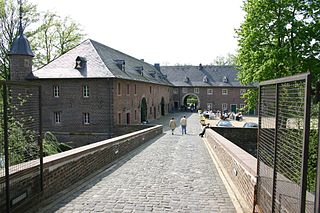
Düren is a town in North Rhine-Westphalia, Germany, between Aachen and Cologne, on the river Rur.

A Jihad for Love is a 2008 documentary film written and directed by Parvez Sharma and was the world's first film on Islam and homosexuality. It took a total of six years to make and premiered at the Toronto International Film Festival in September 2007. It premiered at the Berlin Film Festival in 2008 as the opening documentary film for the Panorama section.
The Felix-Rexhausen Award were created 1998 by the Bund Lesbischer und Schwuler JournalistInnen to recognize and honor the mainstream media for their fair, accurate and inclusive representations of the LGBT community and the issues that affect their lives.
Bayerischer Fernsehpreis is an award presented by the government of Bavaria, Germany since 1989. The prize symbol is the "Blue Panther", a figure from the Nymphenburg Porcelain Manufactory. The prize money is €10,000.
Gisela Bleibtreu-Ehrenberg is a German sociologist, ethnologist, sexologist, and writer further specializing into the fields of psychology, Indo-European studies, religious studies, and philosophy, since 1980 also increasingly anthropology. As Bleibtreu-Ehrenberg uses these approaches in research particularly in the fields of sexology, homophobia, and prejudice studies, the US Society of Lesbian and Gay Anthropologists of the American Anthropological Association ranked Bleibtreu-Ehrenberg's works on homophobia as internationally outstanding.

Tabu Homosexualität: Die Geschichte eines Vorurteils is a standard work of Germanophone research into homophobia, written by German sociologist, ethnologist, and sexologist Gisela Bleibtreu-Ehrenberg, and first published in 1978.

In World War II, Nazi Germany established brothels in the concentration camps to increase productivity among inmates, although these institutions were used mostly by Kapos, "prisoner functionaries" and the criminal element, because regular inmates, penniless and emaciated, were usually too debilitated and wary of exposure to Schutzstaffel (SS) schemes. In the end, the camp brothels did not produce any noticeable increase in the prisoners' productivity levels, but instead, created a market for coupons among the camp VIPs.
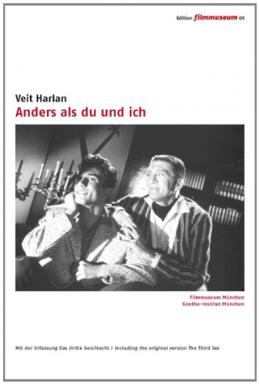
Different from You and Me (§175) is a 1957 feature film on the subject of homosexuality directed by Veit Harlan. The film was subject to censorship in Germany, and several scenes had to be altered before it could be released.
Gunnar Dedio is a German film producer and media entrepreneur. He is the founder and managing director of the film production company LOOKSfilm.

Aljoscha Pause is a German filmmaker, director, TV journalist, writer, and producer. He is a member of the Deutsche Filmakademie and the German Academy for Football Culture.
Hans Eberhard Lorenz is a German jurist.
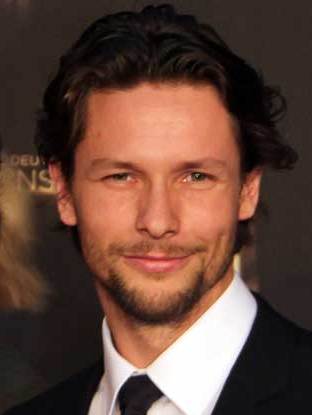
Bert Tischendorf is a German actor.
Jugend Rettet is a non-governmental organization (NGO) from Berlin. Its goal is to save drowning persons at the Mediterranean Sea. Operations are conducted with the Iuventa, a ship that sails under Dutch flag. This ship was seized in August 2017 after suspicion of cooperation with migrant smugglers.
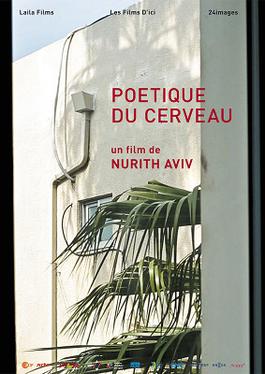
Poétique du cerveau is a 66-minute 2015 French-German-Israeli French-, Hebrew-, and Italian-language independent underground experimental documentary art film directed by Nurith Aviv.
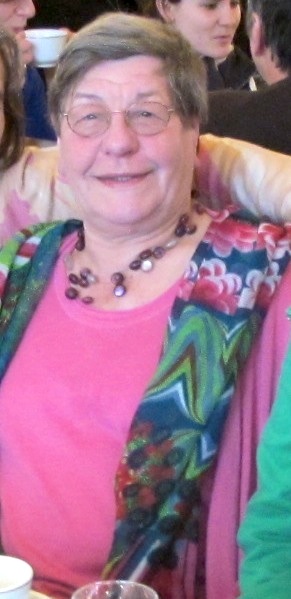
Ilse Kokula is a German sociologist, educator, author and lesbian activist in the field of lesbian life. She was awarded the Order of Merit of the Federal Republic of Germany.

Kroos is a 2019 documentary film about German professional footballer Toni Kroos. The film was directed by Manfred Oldenburg and produced by Leopold Hoesch.

King Otto is a 2021 feature film directed by Christopher André Marks. The film tells the story of the victory of the Greece National Football Team at the 2004 European Championships.
Ariela Bogenberger is a German screenwriter, producer, cabaret director and journalist.
"Ordinary Men: The "Forgotten Holocaust" is a German documentary film by director Manfred Oldenburg and producer Leopold Hoesch from 2021. The film was broadcast on ZDF on 25 January 2022.
Cedric Hählen was a Swiss mountaineer. During his lifetime, he was the youngest European to climb K2, and climbed five eight-thousanders before the age of thirty.
References
- ↑ "Das letzte Tabu –". broadview.tv (in German). Retrieved 2024-03-26.
- ↑ "Amazon.de: Das letzte Tabu ansehen | Prime Video". Amazon Germany. Retrieved 2024-03-14.
- ↑ Gertz, Holger (2024-02-12). ""Das letzte Tabu" auf Prime: Vom Druck, ewig lügen zu müssen". Süddeutsche.de (in German). Retrieved 2024-03-26.
- ↑ Meisenberger, Raimund (2024-02-12). "Warum schweigen schwule Fußballprofis? Doku "Das letzte Tabu" auf Amazon Prime". Passaier Neue Presse (in German). Retrieved 2024-03-26.
- ↑ Knödler, Benjamin (2024-02-15). ""Das letzte Tabu" über Homosexualität im Fußball: Leben gegen Traum". Der Freitag (in German). Retrieved 2024-03-26.
- ↑ Theweleit, Daniel (2024-02-13). "Homosexualität im Fußball: Doku "Das letzte Tabu" bei Amazon Prime Video". Frankfurter Allgemeine Zeitung (in German). Retrieved 2024-03-26.
- ↑ Mark, Oliver (2024-02-13). ""Das letzte Tabu": Wo sind die 50.000 schwulen Fußballprofis?". DER STANDARD (in Austrian German). Retrieved 2024-03-26.
- ↑ Freckmann, Michael (2024-02-12). "Warum die Doku "Das letzte Tabu" ein guter Anfang ist". queer.de (in German). Retrieved 2024-03-26.
- ↑ Smith, Rory (2024-02-10). "Is Soccer Ready to Retire Its Last Taboo?". messaging-custom-newsletters.nytimes.com. Retrieved 2024-03-26.